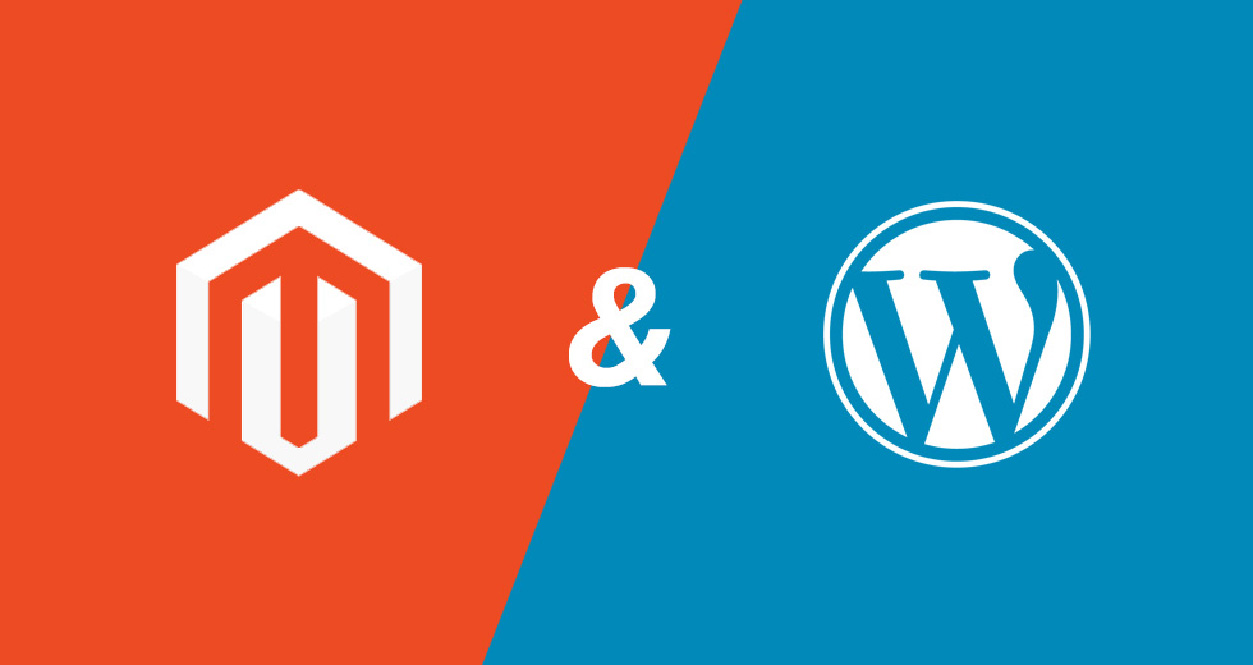Reasons Justifying Magento Dominance as an E-commerce Platform Over WordPress
Ever since WordPress has evolved into a full-fledged CMS, several website owners are choosing it for building e-commerce sites other than Magento. And so, it’s too easy for novices to become perplexed when choosing one of these platforms for building their online site.

In this guest post we’ll talk about some key aspects of both WordPress and Magento platforms and help you understand why you should select Magento as your e-commerce platform than WordPress.
An Overview of WordPress and Magento
WordPress was designed as a blogging platform, and has now turned into a powerful content management system. On the other hand, Magento CMS was designed for creating e-commerce sites. Both of these content management systems are open-source and SEO friendly. In fact, WordPress as well as Magento has a huge user base.
How Magento is a Good Option Than WordPress For Building Online Sites?
Observing the ever-increasing popularity of WordPress, it’s not surprising to see beginners leaning towards WordPress for developing e-commerce sites even when Magento can be a far better option. Let’s now consider some major reasons that will help you understand why you should go for Magento than WordPress for building online sites.

Better Control Over E-commerce Site: As discussed above previously, Magento was designed as an e-commerce platform, while WP was initially designed as a blogging platform. And so, Magento comes with built-in e-commerce functionalities and powerful features that enables site owners to have complete control over their e-shop. For instance, a Magento site comes loaded with built-in shopping cart options and payment options. In addition, you can even access tons of extensions to add more features and functions to your e-shop.
In contrast, WordPress doesn’t possess any built-in e-commerce functionality. You need to install WP plugins to embed shopping cart options and sign-up for third-party payment gateways. Although, you can use the plugins to add e-commerce features into your site but they’re limited in numbers when it comes to Magento extensions.
Handling Complex E-commerce Requirements: Magento comes with built-in e-commerce functionalities and tons of great extensions, which give you the ability to carry out Custom Magento Development for building large-scale complex online sites or stores. WordPress, on the other hand, is only suitable for building small-size e-commerce sites with a limited number of products.
Besides, Magento works on a more complicated e-commerce structure in comparison to WordPress. And so, for a WP developer having familiarity with WordPress CMS, making a transition to Magento can be a challenge. You might find it difficult to understand Magento’s workings. But once you’re familiarize with it, you will be able to create beautiful and highly functional e-commerce sites with Magento.
Backend Interface: Magento backend interface is a lot more powerful when it comes to building complex e-commerce site than WP backend interface. Even a person with little knowledge of the Magento backend can set up a functional e-commerce site easily. However, using WordPress you might not be able to build a functionally rich e-commerce site.
You’ll either have to activate a few plugins or manually write the code to integrate certain e-commerce functions in your WP site. And if coding ain’t your thing, then you would have to bring a professional on board. And so, working with WordPress might require you to spend more money compared to a site developed using Magento.
E-commerce Themes: Magento themes comes integrated with multiple and powerful e-commerce functionalities compared to any WP e-commerce theme. Probably, you may find more e-commerce features in a free Magento template than a free WordPress e-commerce theme. Moreover, Magento templates are more flexible and can be customized according to your growing online business needs. However, to make your WP e-commerce theme tailored to cope up with your business growth, you’ll need to spend time and even money in finding and downloading the right plugins.
Wrapping Up!
Using Magento for building your e-commerce site is a viable option because of the ample number of extensions and modules it offers. With Magento, you can create flexible e-commerce sites that grows along with the growth of your business, which is something you can’t achieve using the WordPress CMS. However, in case you want to set up a small online site with not more than 10 products, you can think of choosing WP.
Author Bio :
Jason is currently employed with OSSMedia Ltd. – Magento development company and is also engaged in writing informative articles on best tools and tricks for Magento development. Her write-ups have proved beneficial for a wider group of Magento developers across the globe.

Please let us know your comments and suggestions: